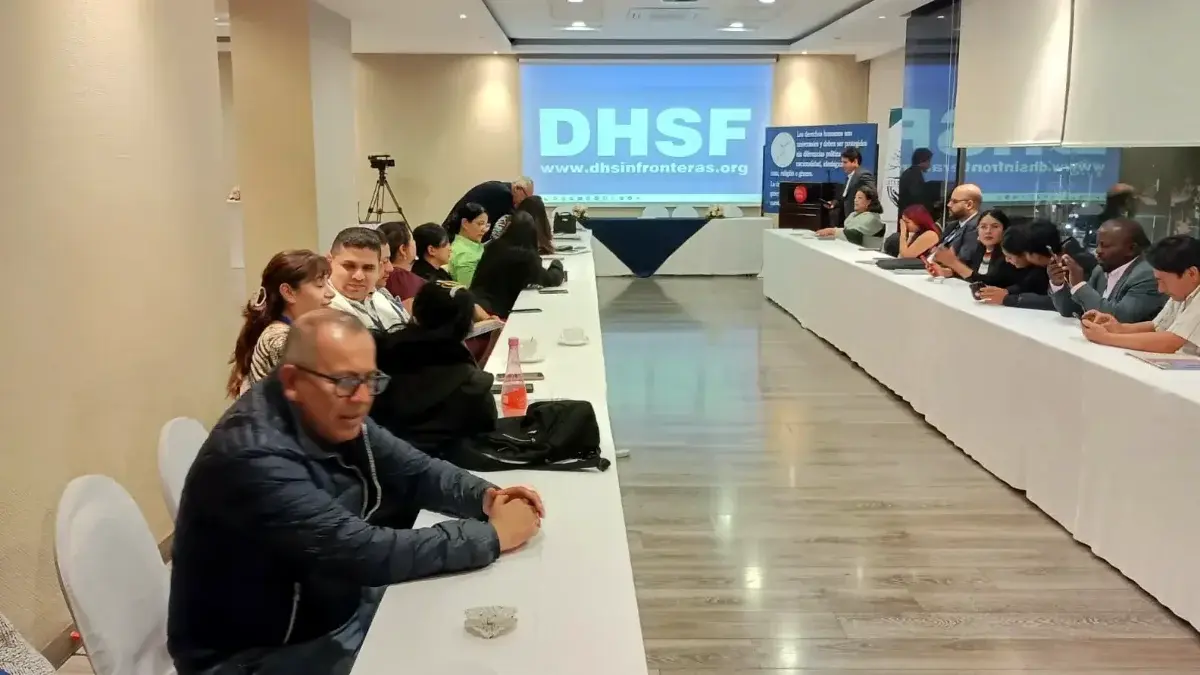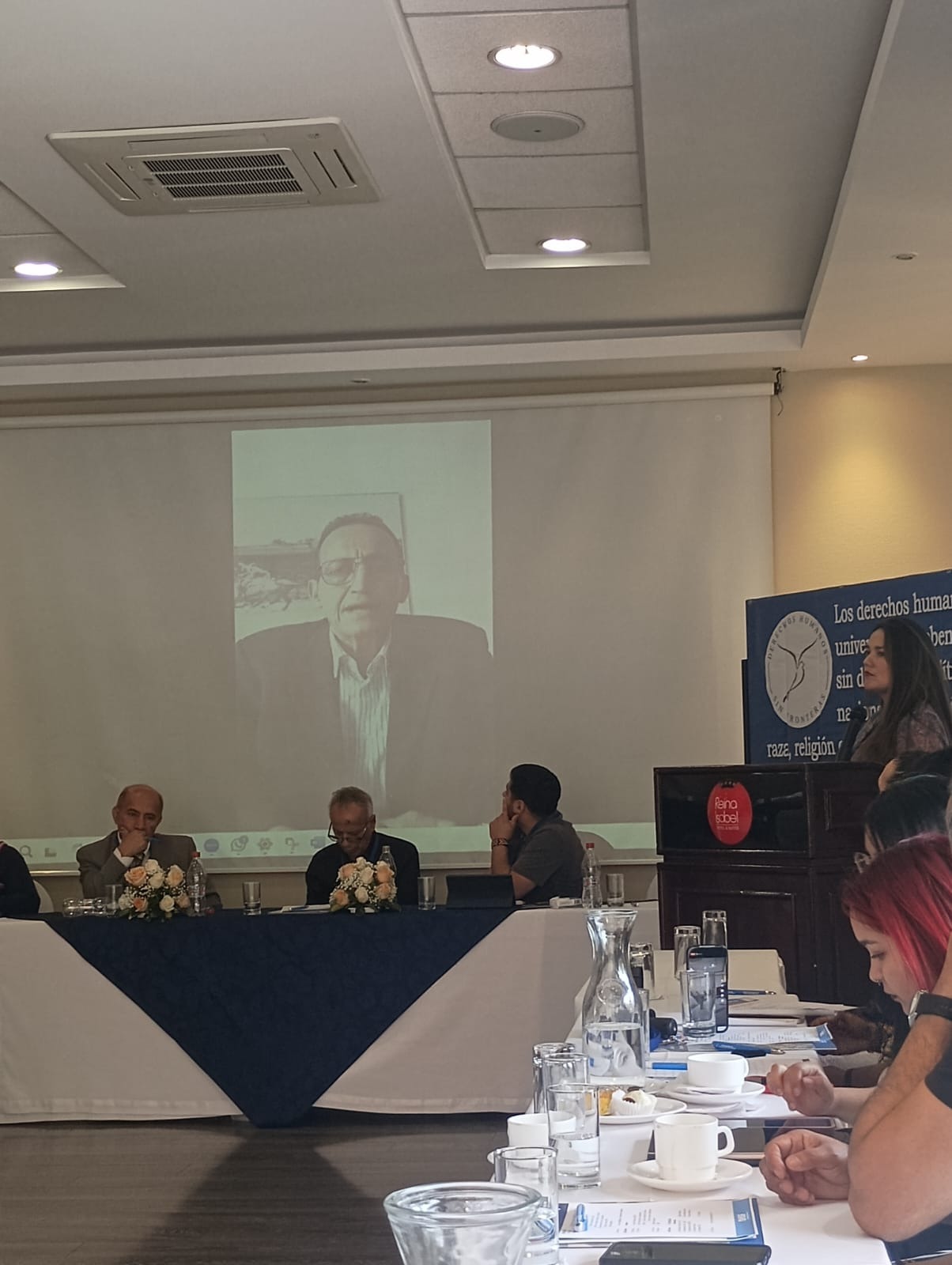ASADEH denounces the lack of respect for human rights in Tindouf

During the third meeting of the Human Rights Without Borders Foundation (DHSF) held in the Ecuadorian capital Quito on 16, 17 and 18 July, the Sahrawi Association for the Defence of Human Rights (ASADEDH) presented the following motion, which was unanimously supported by the various organisations present at the meeting and included in the final declaration of the meeting, entitled ‘Quito Declaration’.
The signatories include the following personalities:
- Edgar Sarango, president of the Confederation of Workers of Ecuador (CTE).
- Juan Carlos Moragas Duque, president of the Human Rights Without Borders Foundation (DHSF).
- Rodrigo Pizarro, lawyer specialising in human rights.
- Sonia Valdez, Doctor of Law.
- Guillermo Godoy, president of the National Chamber of Small and Medium-Sized Enterprises of Ecuador.
- Flavio Granizo, president of the Association of Mining Engineers of Ecuador
- Rosa Helena Diaz, director of the Human Rights Department of the Confederation of Workers of Peru and programme director at the Ministry of Agricultural Development and Irrigation of Peru.
- Gricel Nancul, human rights defender and leader of indigenous peoples, Chile.
- Younes Khaya, director of Transition in Laayoune.
- Carmen Olise Cerdán, president of the Association of Women Entrepreneurs of Ecuador.
- Fiador Nicolay Mena, president of the College of Engineers of Ecuador (CIGAE).
Situation in the Tindouf camps
Over the last year, since the second DHSF meeting held in Santiago, Chile, we have observed a serious deterioration and regression in human rights in the Tindouf camps (Algeria), as well as a food crisis caused by the diversion and sale of food aid in neighbouring countries by Polisario leaders in collusion with senior Algerian military officials.

In terms of human rights
We have been able to count a dozen murders of defenceless Sahrawis living in the aforementioned camps at the hands of the Algerian army.
The rise of drug cartels and smuggling in general, mostly run by warlords and Polisario leaders who often clash with each other for control, has created a climate of panic among the population. The latest of these sporadic clashes took place last June.
We have also verified the case of the detention or kidnapping of hundreds of young people, mostly girls. The latest and most high-profile case is that of a girl named Sàfia, who was kidnapped and is currently in hiding in an apartment in Algiers for fear of being arrested or reprisals. The Polisario has issued a warrant for her arrest.
We have also confirmed that many young people from the camps have joined the ranks of various terrorist groups active in the Sahel region (especially Mali and Niger).
In the last year, there have been two indiscriminate missile attacks against civilian targets in the city of Smara, causing a sense of terror among the civilian population. These acts have been and are considered by various international observers to be genuine acts of terrorism.
Diversion of humanitarian aid
With regard to the diversion of humanitarian aid, we believe that it is necessary and urgent, as requested by the UN, to carry out an official census of the population in the camps, which is being blocked by the Polisario and Algeria with the aim of denying this population any kind of status.
For all these reasons, we consider the Polisario to be a factor of instability in the entire region and, the more diplomatic setbacks it suffers, the more unpredictable its reactions become, such as the attacks on Smara or the iron-fisted repression in the camps it runs with the approval of Algeria.
We therefore call on the international community, all organisations and civil society in general to condemn these practices and to urge the Polisario and Algeria to allow the free movement of the Sahrawi population in the camps.








